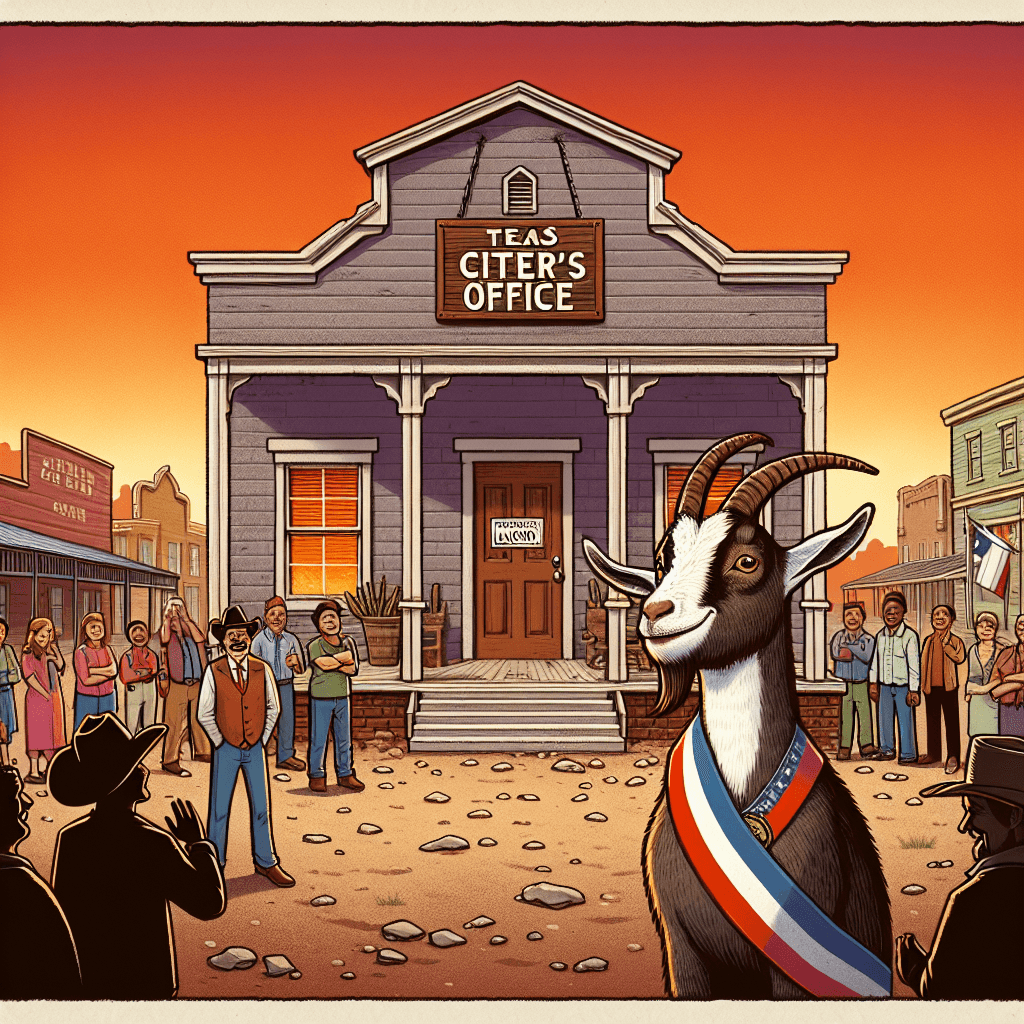The Goat Mayor of Texas: Fact or Folklore
Before you dismiss the legend of a beer-drinking goat holding political office in Texas, you should know that some parts of this wild story are absolutely true.


Too Long; Didn't Read
TLDR: The story is real. A beer-drinking goat named Clay Henry became the symbolic mayor of Lajitas, Texas, as a publicity stunt in the 1980s. It is a true local tradition, not an official political office.
Kidding Around or Political Reality? Is it True a Texas Border Town Once Actually Elected a Goat Mayor?
Imagine scanning election results and finding a goat listed as the winner. It sounds like a punchline to a political joke, doesn't it? Yet, whispers and tall tales from the Texas borderlands often mention just that: a town that put a hoofed, horned candidate into office. This brings us to the intriguing question: Is it true a Texas border town once actually elected a goat mayor? This post will delve into the dusty archives of Texas folklore and fact to uncover the truth behind one of the state's most peculiar political legends.
The Legend of Lajitas and Mayor Clay Henry
The story centers on the small, unincorporated community of Lajitas, nestled along the Rio Grande River near Big Bend Ranch State Park in Texas. It's a place known more for its stark beauty and resort atmosphere than its bustling political scene. According to popular lore, sometime in the 1980s, the residents of Lajitas, perhaps weary of human politics or simply embracing the town's unique character, elected a goat named Clay Henry as their mayor.
The legend often includes colorful details:
- Mayor Clay Henry was known for his fondness for beer, supposedly guzzling dozens of bottles offered by tourists and locals daily at the Lajitas Trading Post.
- He served diligently, becoming a beloved local figure and a significant tourist attraction.
- The "mayoral" position even passed down through generations, with Clay Henry Jr. and Clay Henry III taking up the mantle after the original's passing (or, in one darker version of the tale, after a fatal encounter involving his son during rutting season).
Sorting Fact from Folklore: Was it a Real Election?
Here's where we need to separate the tall tale from the actual events. While there absolutely was a famous beer-drinking goat named Clay Henry in Lajitas who held the title of "Mayor," the term "elected" requires clarification.
- Honorary Title, Not Official Office: Lajitas, being an unincorporated community, doesn't have a formal mayoral office or government structure in the traditional sense. There was no official ballot, no legally binding election where Clay Henry ran against human candidates.
- Promotional Genius: The "election" and subsequent "mayoral" status of Clay Henry were largely a brilliant piece of local color and marketing, likely originating from the owner of the Lajitas Trading Post, Bill Ivey, in the 1980s. It drew attention, attracted tourists eager to meet (and share a beer with) the goat mayor, and cemented Lajitas' quirky reputation.
- A Beloved Mascot: Clay Henry (and his successors) served as beloved town mascots and symbols of Lajitas' offbeat charm. Tourists genuinely enjoyed interacting with the beer-loving goat, and he became synonymous with the town.
So, while a goat was universally recognized and celebrated as the "Mayor" of Lajitas, it wasn't the result of a formal political process. It was a case of community spirit, clever marketing, and embracing a unique local character.
Why a Goat Mayor?
The phenomenon of Clay Henry wasn't just random silliness. It tapped into several aspects of the local culture and tourism:
- Local Character: It perfectly embodied the rugged, independent, and slightly eccentric spirit often associated with West Texas border towns.
- Tourism Magnet: In a remote area, unique attractions are vital. A beer-drinking goat mayor was certainly unique and proved highly effective in drawing visitors.
- A Touch of Anti-Politics?: While perhaps not an overt political statement, having a goat as a figurehead could be seen as a lighthearted commentary on the absurdity sometimes found in human politics.
Not Entirely Unique
While perhaps the most famous, Lajitas isn't the only place to have an animal in an honorary leadership role. Other examples include:
- Stubbs the Cat: Honorary mayor of Talkeetna, Alaska, for 20 years.
- Duke the Dog: Elected honorary mayor of Cormorant, Minnesota, multiple times.
These instances highlight a willingness in small communities to embrace novelty and symbolism over strict political formality for certain roles.
Conclusion: A Legend Built on Truth (Mostly)
So, is it true a Texas border town elected a goat mayor? The answer is a qualified yes. While Clay Henry wasn't elected in a legally recognized political process to an official government position, he was affectionately granted the title of "Mayor" by the community of Lajitas and served as its most famous ambassador for years. The story isn't about formal politics but about folklore, community identity, and clever marketing that transformed a beer-drinking goat into an enduring West Texas legend. The tale of Mayor Clay Henry reminds us that sometimes, the most memorable figures in a town's history might just be the ones who walk on four legs.


